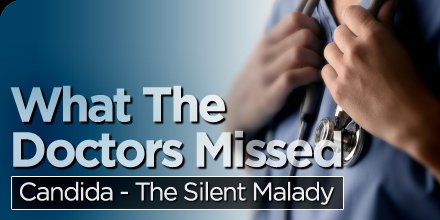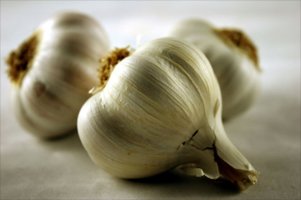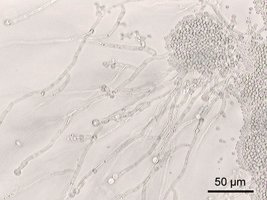
I have recently been diagnosed with Candida. Most people are unaware that it even exists, because most main stream doctors are uneducated about its impact on our health. Learn more.
I have recently been diagnosed with Candida. Most people are unaware that it even exists, because most main stream doctors are uneducated about its impact on our health. People suffering from this condition often go from doctor to doctor for years and are usually told they are a hypochondriac or that it is stress or a psychiatric problem, before ever discovering the real culprit. This was exactly how I was treated! It wasn't until I visited a Naturopathic Doctor that we were finally able to figure out what was causing such havoc with my health.  People Suffering From This Condition Are Often Told That It Is A Culprit Of Stress Or A Psychiatric Problem.  What Is Candida?  Candida Albicans is a yeast that occurs naturally in the human body. Normally it lives in harmony with a variety of other microorganisms and actually performs a couple important functions. The problem occurs when something upsets the balance of bacteria in the body and this allows the yeast organism to proliferate and take over all the healthy microorganisms. It normally resides in the intestinal tract, mouth, throat and genitals, however it can burrow holes in the intestinal tract, enter the blood stream and then make it's way into any organ of the body. To make matters worse it emits over 70 different toxins into the body. Some people may even become allergic to the yeast itself.  Candida Symptoms  Some of the most frequent Candida symptoms are:
Candida also secretes waste products known as mycotoxins, one of which is acetylaldehyde. In the liver, acetaldehyde is converted to alcohol. As the alcohol builds up in the system, symptoms develop that are associated with feeling drunk: dizziness, mental confusion and trouble concentrating.
 My Story  I have been living with more than half of these symptoms for several years. I can't tell you how many doctors would tell me I should try antidepressants and go see a therapist. I'm not knocking psychiatric drugs or the power of therapy, but in this case, I just knew something was seriously wrong with me. Every time I ate wheat, I would wheeze and have severe digestive issues (I'll leave the descriptive imagery out). I was so frustrated because it seemed I was always starting to come down with a cold and then it would subside when I cut the wheat out of my diet. Even after a year of nearly eliminating wheat, with the occasional slip up, I still wasn't feeling right. In October of 2008, I started seeing Dr. Sarah Kotzur, a Naturopathic Doctor in Portland, Maine. I was having anxiety, premenstrual syndrome, aches and pains and feeling exhausted. We went over my diet and eliminated wheat. I was still drinking coffee, consuming sugar and artificial sweeteners, and eating plenty of fruit. Dr. Kotzur recommended some supplements and I saw some improvement in my wellbeing for a few months. By mid-December, I was back regularly imbibing alcohol, eating holiday goodies and burning the proverbial candle at both ends. All my symptoms began to surface again.
Candida may play a role in just about any mental health condition or chronic illness you can think of. Yeast overgrowth is considered to be a leading contributor in:
 The Causes Of Candida  There are a variety of causes of Candida, but the two leading contributors are a diet high in sugar and refined foods and the overuse of antibiotics. First and foremost you want to refrain from taking antibiotics unless it is absolutely necessary. Try to find other healthy alternatives to infections, but of course there may be times when it can't be avoided.
If you must take an antibiotic for some reason, you should always be sure to take an acidophilus supplement during the course of the treatment. This will help keep healthy bacteria present in your body. Taking acidophilus on a daily basis is one of the best defenses against yeast overgrowth and it promotes a healthy colon. Consumption of garlic and oregano also help to alleviate much of the inflammation caused by Candida. As a powerful natural antiseptic, garlic can cure inflammations of the stomach and intestine, including the Candida yeast. But unlike other more powerful treatments, garlic destroys unfriendly bacteria while preserving and boosting the good bacteria in your digestive system!  Garlic Can Cure Inflammations Of The Stomach And Intestine, Including The Candida Yeast. Although no tests have been performed on garlic and Candida in humans, a study on mice infected with the Candida yeast found that garlic completely eliminated a serious outbreak within 2 days. Oregano oil contains two naturally occurring anti-microbial agents named Carvacrol and Thymol. It appears that these chemicals react with the water in your bloodstream to actually dehydrate germs and fungi. Luckily, this only affects germs and yeasts - oregano oil leaves the helpful bacteria to continue their work.
 Finding My Cure  I went back to see Dr. Kotzur in January of this year. I was experiencing severe PMS (premenstrual syndrome), bloating, weight gain, feeling anxious and depressed, had frequent sore throat, ridiculous sugar cravings, irritability and generally exhausted. I would also feel "drunk" after consuming a large amount of sugar. According to her, my symptoms were textbook Candida. You can't imagine what a relief it was to have a diagnosis and a real explanation as to what was ailing me. The first thing Dr. Kotzur recommended was changing my diet. This meant adopting a Candida Diet, which is actually not much different to the way many athletes and bodybuilders eat.   You Can't Imagine What A Relief It Was To Have A Diagnosis And A Real Explanation As To What Was Ailing Me. The Candida Diet is very healthy and not too difficult to follow, especially if it means a significant improvement in your overall health and sense of wellbeing. A diet high in sugar is a haven for yeast. It's crucial to eliminate and refined foods to reduce overgrowth. Initially even fruits and high carbohydrate foods (such as white rice or white potato) may need to be eliminated and then reintroduced to the diet later as you get better. Yeasts feed on any fermented foods. Avoid any made with vinegar and foods that are other types of fungi like mushrooms. Alcohol and caffeine are both strong gut irritants and alcohol feeds yeast. Meat, eggs, vegetables and yogurt are the best choices to stick with and small amounts of whole, healthy carbohydrates such as brown rice, potatoes or gluten free bread.  Do You Have Candida?  There are a variety of tests that practitioners use to diagnose yeast overgrowth, that may include stool tests, blood tests, live blood cell tests, etc., but the truth is that none of these tests are really reliable. They may or may not detect an infection of Candidiasis. The simplest way to know if you have a yeast problem is by your symptoms. See a certified health practitioner that is familiar with Candida so that they may rule out if there isn't something even more serious plaguing your system.
| |||||||||||||||||||||||||||||||||||
 SHARE
SHARE







No comments:
Post a Comment